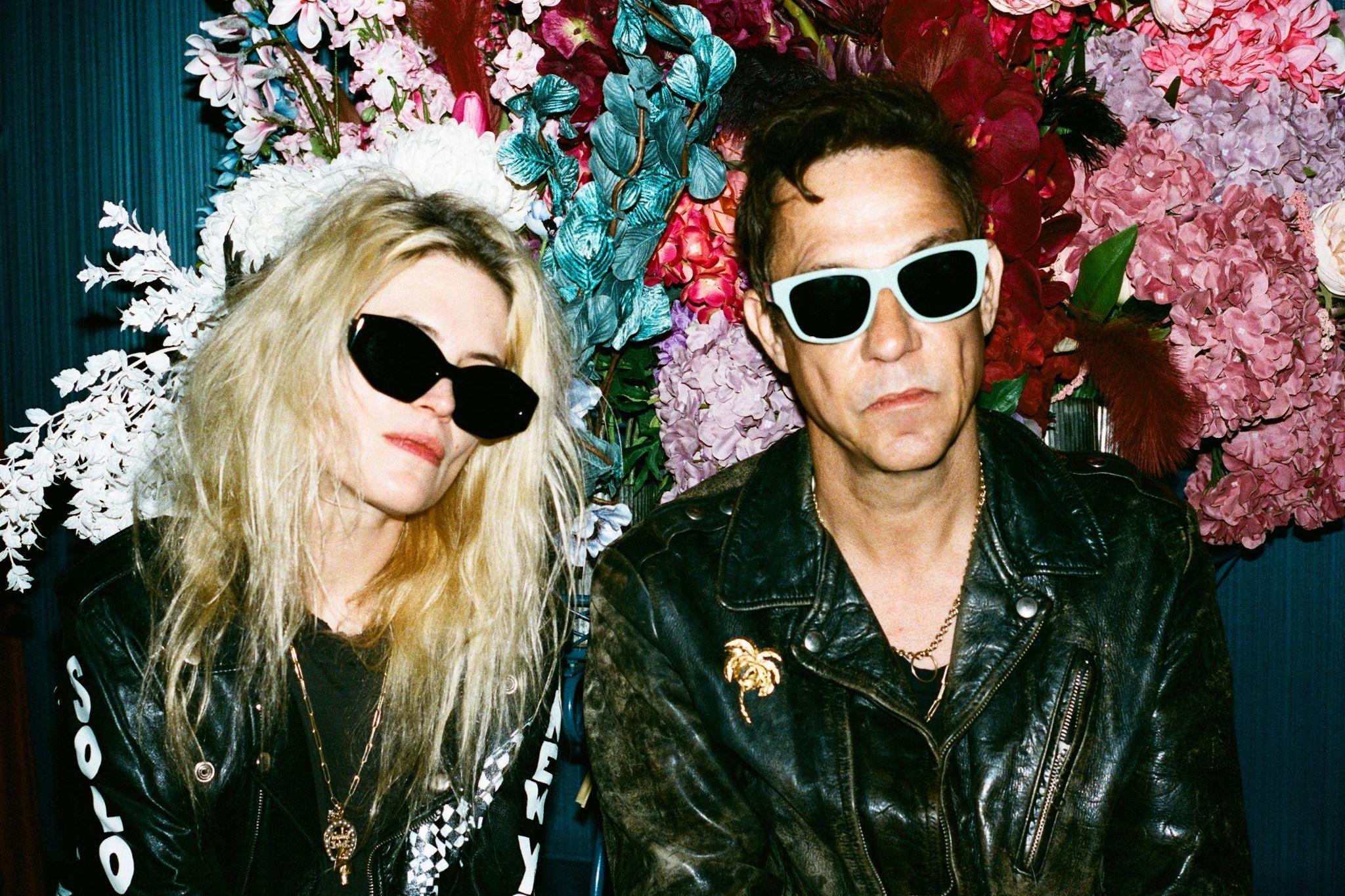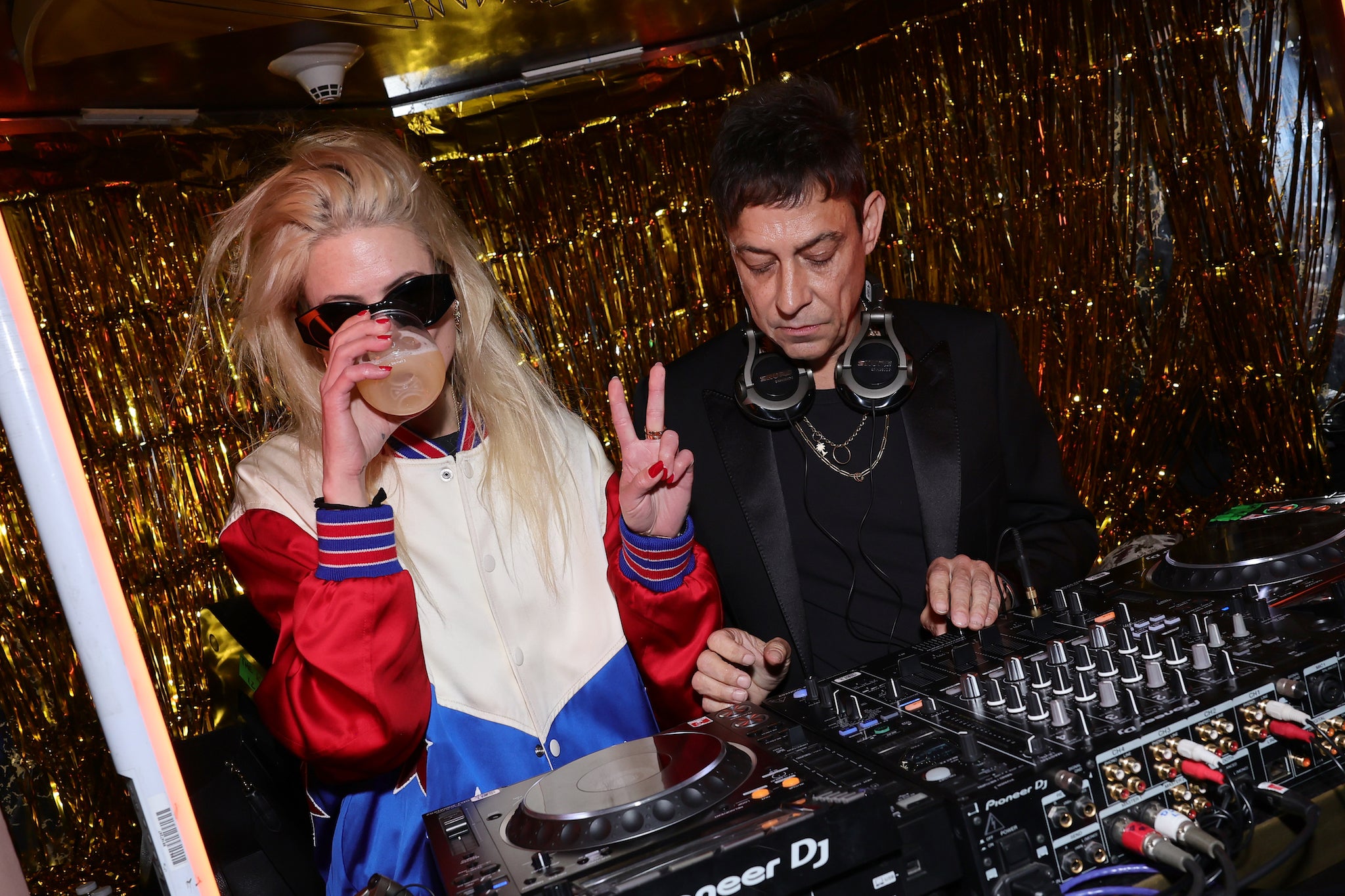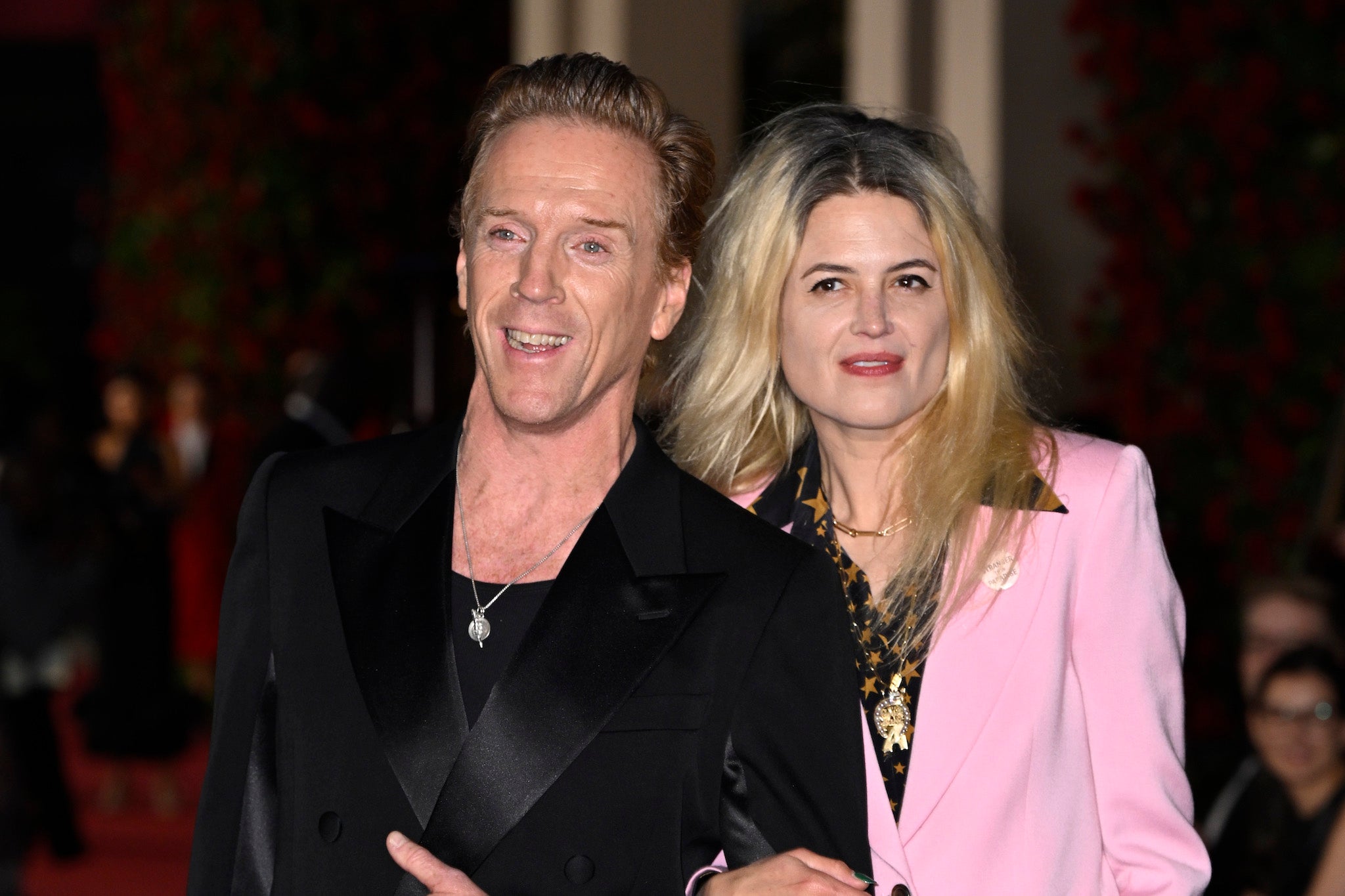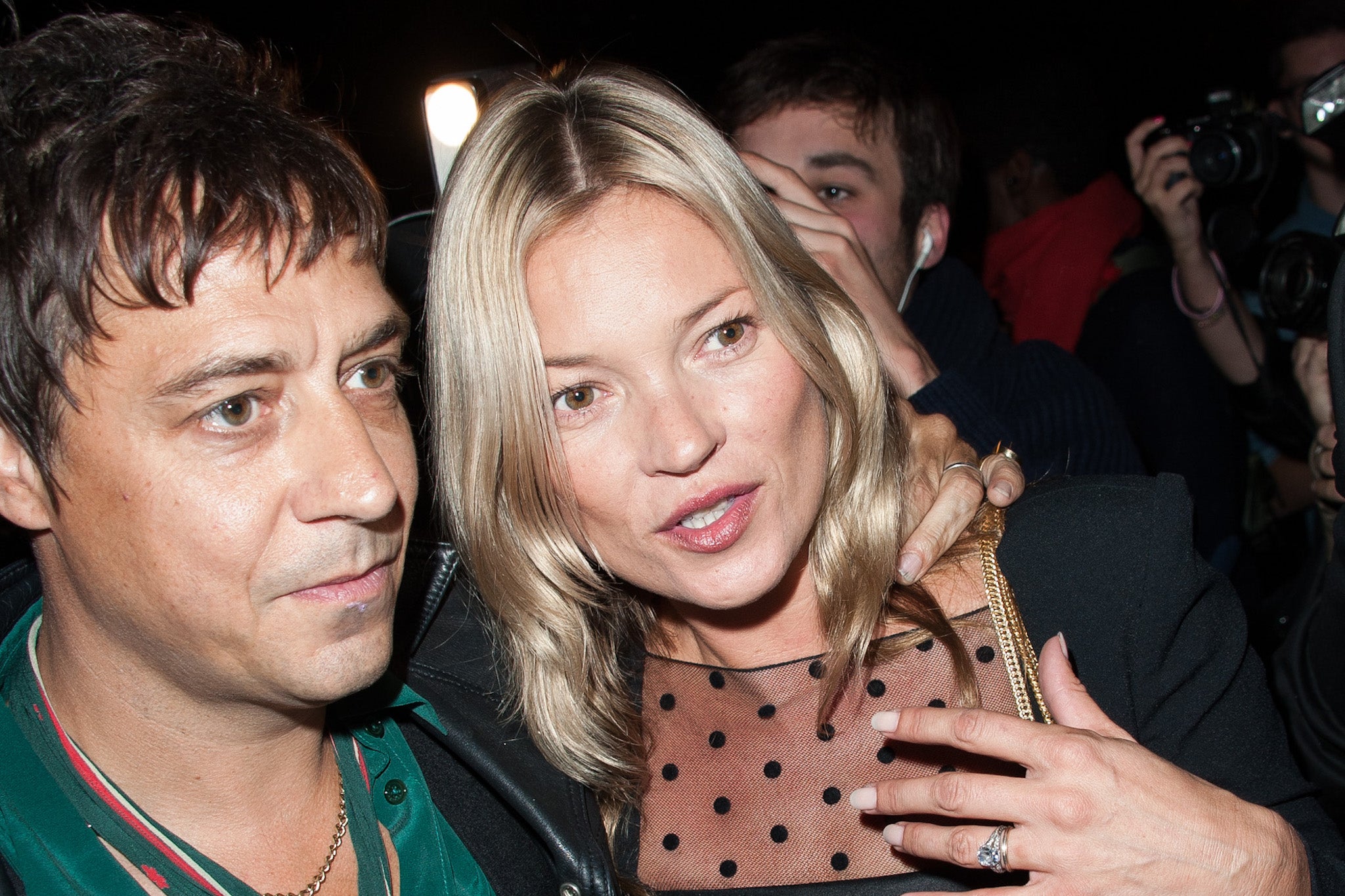The Kills: ‘Touching down in Heathrow was like the first day back at school again, feeling triggered by the bullying’
Guitarist Jamie Hince and singer Alison Mosshart have been reinventing rock’n’roll for two decades – and dating famous people. They talk to Stevie Chick about punk rock, dark times and sucking at lockdown

Every record we make I have a terrible f***ing disaster!” says Jamie Hince, with a grimace. The Kills’ guitarist, sitting across from the group’s singer, Alison Mosshart, in Dalston’s De Beauvoir Arms, is recalling the gnarly surgeries he’s endured since shattering his feet while making the band’s new album, God Games. Hince sustained the injury at his home in Los Angeles after leaping three flights of stone steps to rescue his dog from what he imagined was a coyote attack (the distressed pooch had, in fact, been sprayed by a skunk). “They had to slice open my calf muscles and reattach my achilles tendon,” he winces, his garrulous croak making him sound like Keith Richards’s mischievous nephew.
Hince is a remarkably disaster-prone rocker. When the transatlantic blues-punk duo began work on their fourth album, 2011’s Blood Pressures, he shattered his elbow; unable to hold his guitar, he wrote the songs on a pedal-steel guitar he played on his lap. “And in 2013 I slammed my finger in a car door and smashed it all up,” he continues. “We were playing a charity show that week, so I figured out how to play the songs without that finger, and we got away with it. So maybe I didn’t even need that finger! Playing guitar is only difficult if you want to sound like everyone else. And I never have.”
While he’s struggled to remain in one piece, Hince’s inimitable brutalist guitar – not to mention Mosshart’s bull****-intolerant, cheroot-chewing snarl – have seen The Kills juggle critical acclaim and chart success for two decades now. Their new album suggests their best is still to come.
The shattered feet were par for the obstacle-strewn course of God Games. Hince and singer/guitarist Mosshart began writing the record on tour in 2019, before Covid stopped the duo in their tracks. “I sucked at lockdown,” says Mosshart. Having spent her life on the road, she had friends and family tucked in every corner of the globe, far from reach. “I spent the first year on the phone to my parents, hoping they didn’t get sick and die.” As soon as restrictions lifted, Mosshart peeled out onto the highway, driving from her Nashville home, as far as her wheels could take her. “I’d drive to LA to see Jamie, to New York. I visited 27 states, checked out ghost towns, sculptures and monuments, because everywhere else was closed. The casinos were open, though, and they were packed, screening videos teaching you how to drink and smoke cigarettes while still wearing your mask.”
Mosshart’s epic lockdown excursions were satisfying a wanderlust that has governed her since she was a restless kid in Vero Beach, Florida. “Florida was hot and smelt weird. I was starving for something else. Art. Fashion. Music. Energy.” She found it aged 11, in the punk-rock mixtapes her skateboarder neighbours made her. As soon as she got her driving licence, she was following legendary hardcore punk group Fugazi across America. “They were the most amazing performers I ever saw,” she remembers. “They got me into shows, gave me green tea and always made sure I was safe and fed.”
Mosshart formed her own band, Discount, when she was 14. “None of us could play our instruments,” she says, but that wasn’t really the point. They booked shows across the US via the underground punk community; by 15, she had played Japan. “I travelled the world. And then it ran its course, and it was time to find the music I actually wanted to make.” She found the answer in a friend’s London flat, as the guitar-playing of their housemate bled through from his room upstairs. “It was the coolest sound I’d ever heard.”
I had a manic episode for two years, and I loved it
That guitarist was Hince, whose own rock’n’roll dreams had just derailed. “My first band, Scarfo, had got dropped by our label,” he says. “I was losing faith. My dad was telling me I was wasting my life making music. And then I met Alison, who had all this faith in me, and told me, ‘You’re the coolest dude.’ I saw Discount play, and she performed like the audience wasn’t there. It was almost voyeuristic, watching this euphoric manic episode. I told my mate, ‘If I do another project, I want it to be with her.’”
Hince gave Mosshart a four-track tape recorder, and they would mail each other song ideas and sound collages. After Discount folded in the summer of 2000, Mosshart washed up in London, and the pair began what became The Kills. “We started out like some art project, making crazy, experimental spaghetti western music,” remembers Mosshart. “We never thought this would go anywhere,” adds Hince. “We were living in s****y little squats in Gypsy Hill [in south London], reading biographies of Edie Sedgwick, swanning around in ridiculous clothes. It was romanticism, our way of escaping reality.”

They assumed alter egos: Mosshart was VV, Hince was Hotel. “It was this mental trick, to become these other characters so we could make music that was bigger than we were,” she says. They decided a third member would dilute the chemistry they’d developed, though there didn’t seem much demand for two-piece blues-punk bands. The music industry only seemed interested in “safe stadium bands like Travis or the Stereophonics”, Hince says.
And then The White Stripes happened. “It was like waking up to this crazy universal consciousness,” says Hince. While toiling in what they’d assumed a perpetual obscurity, the duo heard their bone-simple reimagining of rock’n’roll echoed in groups like The Strokes, Yeah Yeah Yeahs and the aforementioned White Stripes, who were leading a like-minded upsurge, stripping rock’n’roll back to its essential elements. “I was like, ‘Oh my God, we have all these brothers and sisters in America we don’t know about!’” laughs Mosshart. “But we weren’t in New York, we weren’t in Detroit – we were in Gipsy Hill!”
The group signed to UK indie label Domino; their early records are carnal, minimalist and Velvets-like. Switching between feral riffs, shimmering pop and darker, more discordant sounds, their noise soundtracked a songbook steeped in classic themes of love, death, sex and betrayal. Swept up in what NME dubbed “the New Rock Revolution”, they became actual rock stars against all their expectations. Their music scored movies and TV shows, and their cult grew. Hince was even drawn into the vortex of celebrity culture with his 2011 marriage to Kate Moss. “It was like living in two worlds,” he says, adding: “My relationship with the tabloids wasn’t great.” The media focus was the most unbearable in the UK, he says. “It’s a very British thing. We’d touch down in Heathrow and it was like the first day back at school again, feeling triggered by the bullying and all that s***. We had to be completely secret, like we were in hiding.” Mosshart, meanwhile, began a successful side gig in The Dead Weather, a quartet she formed in 2009 with Jack White of The White Stripes. “That was a very different kind of band,” she says. “Constantly in motion, an exercise in whiplash. I loved it.”

The Kills were constantly in motion, too. “We had been lumped in with the garage-rock scene,” says Hince. “And I was determined not just to be that. We didn’t want to make the same record twice.” When writing 2008’s Midnight Boom, Hince was “sick of all these Sixties and Seventies guitar tones. I wanted my guitar to sound like a synthesiser.” The album broke the band wider in America; 2011’s Blood Pressures charted in the Top 40.
While touring 2016’s Ash & Ice, a Top 20 hit in the UK, Hince felt the zeitgeist shift again. “The landscape really changed. We would play festivals where you didn’t hear a guitar all day long. The kids weren’t excited by guitar music. And when I started writing material for God Games, my guitar became an albatross. I’d pick it up, and muscle memory would have me play the same shapes, and it wasn’t exciting or surprising.”
When Covid hit, Hince retreated to his home in LA and lost himself in projects. “I had a manic episode for two years, and I loved it,” he grins. “I lived like a cat – I’d just continue working and making things, fall asleep for a couple of hours and then wake up and start again. Time didn’t matter. I’d open a bottle of wine at seven in the morning! I was learning to embroider, I bought an old photo booth, I started making my own trousers...”

He also got deep into exploring the creative possibilities within his home studio. His mind tuned to Dean Blunt, Dirty Beaches and MF Doom, he found himself drawn to making music far from The Kills’ paradigm. “I invented a side project in my head. And whenever I write something that doesn’t feel like The Kills, I’ll file it in my side project file.” He dubbed it “LA Hex”, and sent some of the music to Mosshart, though he expected her to hate the tracks or consider them too un-Kills. “But I immediately sent them back to him with my singing on,” Mosshart says. “Alison’s voice is The Kills,” Hince continues. “Hearing it on this new music made it The Kills.”
The new album is bold and direct, drawing influence from everything from Sixties girl pop to the darker, more melancholy side of Blondie, futurist electronic elements fusing perfectly with contorted guitar and Mosshart’s bruised vocals. “I love how sweet the vocals sound, and how dark the twisted lyrics are,” she says. “We’re talking about some really dark times on these songs. I’m referencing things that happened to me and my friends, things I saw on the road on those long drives. I didn’t write any songs during the pandemic, because I didn’t want to write any songs about the pandemic. But I listen to songs like ‘103’, like ‘New York’, like ‘LA Hex’, and it’s like they’re through the lens of what we went through, me trying to find the beauty in it.” Opener “New York”, she says, was inspired by how much she missed the Big Apple during Covid, “my favourite city in the world. I kissed the f***ing ground when I finally got to go back. It’s about trying to find something hopeful.”
Things are brighter now. According to reports, Mosshart is in a relationship with Billions star Damian Lewis, who has begun his own music career, releasing his own debut album Mission Creep in June, though Mosshart does not want to discuss her private life. She feels creatively unbound, a state that’s important to her. She published her book Car Ma – a collage of words and photos referencing her beloved car culture and wider themes of Americana – in 2019, and a related spoken-word album, Sound Wheel, with self-directed videos to accompany each track. “I always painted, drew, made fanzines, took photographs,” she says. “They’re all the same creative process as songwriting.”
But it was music that liberated Mosshart from Vero Beach. “Florida felt very still and slow. That sense of stuckness, geographically – that it takes so long to get out of there – panicked me,” she says. “I always wonder if I’d have turned out a whole different person if I’d been culturally satisfied as a kid – if I’d grown up somewhere else, like New York, and everything was right outside my door.” Punk rock opened Mosshart’s mind, broke her out of Florida, and led her to The Kills, the vehicle that opened the whole world to her, and taught her the self-sufficiency that sustains her to this day. “To be honest,” she smiles, “I’m kind of thankful I hated Florida so much.”
‘God Games’ is out now via Domino






Join our commenting forum
Join thought-provoking conversations, follow other Independent readers and see their replies
Comments